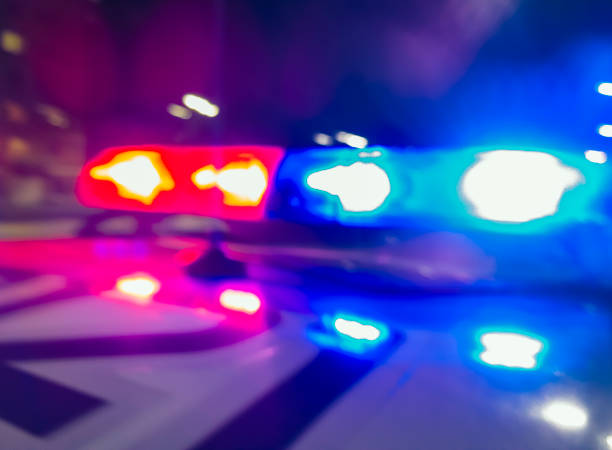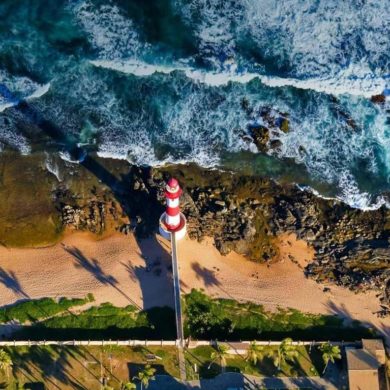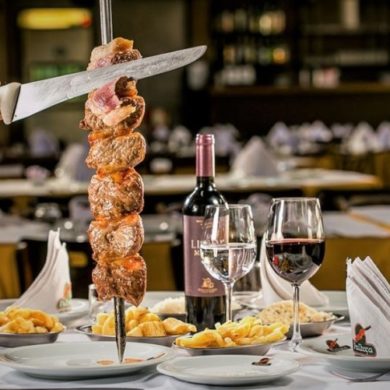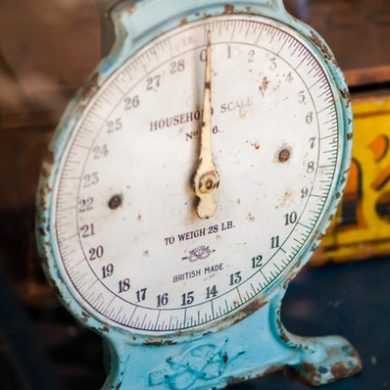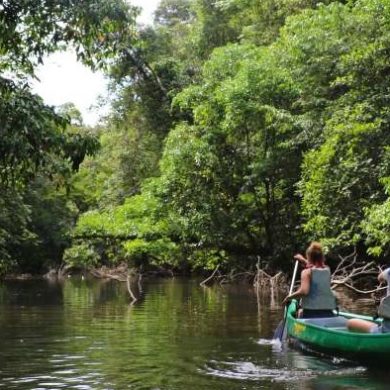In case of an Emergency while you are in Brazil, dial the following numbers:
Ambulance – 192
Police – 190
Fire Service – 193
Portuguese phrases to use when calling Emergency Services in Brazil 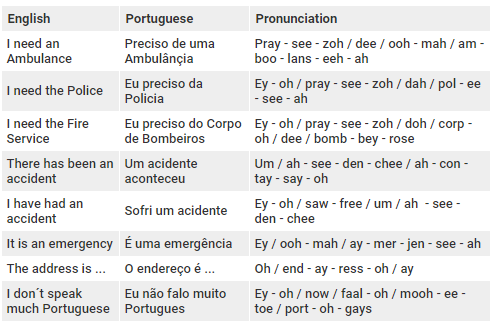
Emergency Services in Brazil
Ambulances
To call an ambulance in Brazil, the number is 192. This will put you through to SAMU (Serviço de Atendimento Móvel de Urgência). This is the public ambulance service and the quality of the vehicles and equipment varies, also they will transport you to a public hospital, which in Brazil is likely to be overcrowded. This service is free of charge but can sometimes be slow and unreliable. If you are on holidays in a Brazilian city, a piece of essential Brazilian travel advice is to find the emergency number of a private hospital and keep it with you. They have ambulance and emergency services that are much more efficient and reliable.
Private Hospitals in Major Brazilian destinations
Rio de Janeiro
Hospital Copa D’Or (Emergency Room)
Rua Figueiredo de Magalhães, 875
Copacabana, Rio de Janeiro
RJ, 22031-011, Brazil
Phone: +55 21 2545-3600
Hospital Samaritano
R. Bambina, 98
Botafogo, Rio de Janeiro
RJ, 22251-050, Brazil
Phone : +55 21 3444-1000
Hospital Samaritano Barra
Av. Jorge Curi, 550
Barra da Tijuca, Rio de Janeiro
RJ, 22775-001, Brazil
Phone: +55 21 3263-1000
São Paulo
Hospital São Camilo – Unidade Santana (Emergency Room)
Voluntários da Pátria, 3693
Santana, São Paulo
SP, 02401-300, Brazil
Phone: +55 11 3172-6800
São Camilo Hospital
Av. Pompéia, 1178
Pompeia, São Paulo
SP, 05022-001, Brazil
Phone: +55 11 3677-4444
Sírio-Libanês Itaim
Joaquim Floriano, 533
Itaim Bibi, São Paulo
SP, 04534-011, Brazil
Phone: +55 11 3394-0200
Hospital São Camilo – Unidade Santana
Voluntários da Pátria, 3693
Santana, São Paulo
SP, 02401-300, Brazil
Phone: +55 11 3172-6800
Fortaleza
Iguaçu
Hospital Aldeota (Emergency Room)
Av. Padre Antônio Tomás, 2056
Aldeota, Fortaleza
CE, 60140-160, Brazil
Phone: +55 4002-3633
Hospital OTOclínica
Av. Antônio Sales, 990
Joaquim Távora, Fortaleza
CE, 60135-100, Brazil
Phone: +55 85 3466-1133
Hospital Sugisawa
Av. Iguaçu, 1236
Rebouças, Curitiba
PR, 80250-190, Brazil
Phone: +55 41 3259-6500
Manaus
Cuiabá (Pantanal)
Hapclínica São Lucas (Emergency Room)
Rua Comendador Alexandre Amorim, 470
Aparecida, Manaus
AM, 69010-300, Brazil
Phone: +55 4002-3633
Hospital São Mateus (Emergency Room)
Av. Aclimação, 335
Bosque da Saude, Cuiabá
MT, 78050-040, Brazil
Phone: +55 65 3051-2222
Minas Gerais
Belém
HVC de Belo Horizonte (Emergency Room)
Av. Barbacena, 653
Barro Preto, Belo Horizonte
MG, 30190-130, Brazil
Phone: +55 31 3337-1000
Hospital Porto Dias (Emergency Room)
Av. Alm. Barroso, 1454
Marco, Belém
PA, 66093-020, Brazil
Phone: +55 91 3084-3000
Police in Brazil
Police in Brazil exist in various forms; each law enforcement agency has its own roles and responsibilities. As a tourist in Brazil, you will encounter police patrolling the streets, protecting public property and monitoring traffic. This section aims to provide a broad overview and information on the various types of police that exist in Brazil. Police in Brazil are organized according to the Federal structure of the country, outlined by the Brazilian constitution. (Brazil is divided into 26 states and the Federal District, which is where the capital Brasília is located.)
Federal Police (Polícia Federal)
The “Polícia Federal” (“Federal Police” in Portuguese) is one of the national agencies responsible for law enforcement in Brazil. The Federal Police is under the “ministry of justice and public security.” The current minister for this department is ex federal judge Sérgio Moro, who has been in the position since November the 1st 2018. To work for the Polícia Federal, applicants must have at least a bachelor´s degree. For some of the specialist units, they will require a specific degree depending on the type of work being applied for.
The main function of the Polícia Federal is to fight crime against federal organizations; in particular it serves to protect the interests of the federal government. For the most part, what they tackle consists of organized crime, terrorism and money laundering. In Brazil, because of the high level of gang activity, these criminal activities are efficient and highly organized. Other notable responsibilities of the federal police include maritime security, airport security and combatting drug trafficking. The Federal Police in Brazil are charged with the protection of foreign heads of state when they visit and also represent INTERPOL in Brazil. Lastly, the Federal Police are responsible for immigration as well, if you need to extend your visa whilst in Brazil for example, you would have to do it through the Federal Police.
Structure of the Federal Police in Brazil
The structure of the federal police in Brazil is similar to the FBI of the United States. It operates across the whole country, often collaborating with other police forces and law enforcement agencies. The highest position within the Federal Police is the Director – General. Based in Brasília, they provide support and make decisions on behalf of the organization. The current Director – General of the Federal Police in Brazil is Maurício Valeixo. The Director – General is supported by 27 superintendents with one located in each region. Under the superintendents are the police officers who carry out the operations of the federal police. These are:
“Agentes de Polícia Federal” – Federal Agents/Police Officers
“Peritos Criminais Federal” – Forensics
“Escrivães de Polícia Federal” Notary Agents
“Papiloscopistas Policiais Federais” – Fingerprints Specialsts
In terms of stations, the Polícia Federal work from:
- 95 Delegacias (Police Offices)
- 12 Border control posts
- 14 Water based stations (maritime or inland)
Specialist Units
The Federal Police also run specialist units that serve specific types of missions. The “Comando de Operações Táticas” (Tactical Operations Command) has the responsibility of protecting Brazil against terrorism. They are a highly skilled unit trained by military in Brazil, U.S, Germany and France. Because of their level of training, they are tasked with dangerous and often violent missions such as major drug seizures. You can only become part of the Tactical Operations Command if you already belong to the Polícia Federal.
“Núcleo Especial de Polícia Marítima” (NEPOM) are the maritime unit of the Federal Police in Brazil. They are active in multiple ports across the country but also are responsible for combatting crime on Brazilian inland waterways such as on the rivers of the Amazon region. This can involve anything from illegal logging to the transport of drugs. They also check and record all international ships coming into and leaving Brazilian ports.
“Coordenação de Aviação Operacional”(CAOP) is the aviation unit of the Federal Police, who are responsible for air transport and for supporting the agents on the ground.
Federal Highway Police (Polícia Rodoviária Federal)
The Federal Highway Police are another function of the Ministry of Justice, although they are a separate force from the Federal Police. The task of the Federal Highway Police is to police Brazil´s roads, highways and traffic. Roughly 11, 000 officers make up this force and they are headquartered in Brasília. Renato Antônio Borges Dias is the Director – General.

Structure of the Federal Highway Police in Brazil
The Federal Highway Police divide the country into “regions.” These areas can cross state borders or encompass more than one state. Each region is split up into “delegations,” each of which have their own post. A special agent or an inspector supervises each of the delegations. Their training center is the Núcleo de Operações Especiais (NOE) where members of the police force receive training in combat and other skills.
One of the biggest responsibilities of the Federal Highway Police is to combat vehicle theft. In a country like Brazil, which is infamous for its bureaucracy, it can take quite a long time to register a vehicle as stolen. In an attempt to speed things up the Highway Police created an alert system, which allows the victim of vehicular theft to enter the registration of the stolen car online so the patrol stations can be notified instantly. The Federal Highway Police are also involved in combatting criminals who extract and transport natural resources without the proper authority. There is a focus on combatting drug smuggling in the border areas in particular. Breathalyzers, speed cameras and other equipment is used for highway and traffic patrols.
The Airborne Operations Division (Divisão de Operações Aéreas), also forms part of the Federal Highway Police. They are mostly are involved in rescue operations and respond to accidents. They also however, conduct traffic supervision from the air. The Airborne Operations Division has also been involved in identifying drug plantations from airplanes.
Federal Railroad Police (Polícia Ferroviária Federal)
The Federal Railroad Police in Brazil are supposed to be responsible for policing the railways of the country. However, this police force does not actually exist. It was created by Dom Pedro II to protect the railways that carried the gold from Brazilian mines and other valuables. Due to such things as privatization of railways, the agency has disappeared, although the Brazilian constitution stipulates its existence.
State Police Forces
There are also Police Forces in Brazil that are responsible for fighting crime in their respective states. The ones you are most likely to see patrolling the streets are the “Polícia Militar.” Below are the main state police forces in Brazil and their roles.
Military Police (Polícia Militar)
The Military Police in Brazil act as a preventative crime fighting agency and aim to maintain public order. Their rules and uniform may vary from state to state but they must always be identifiable by the public whilst carrying out their duties. The Military Police do not conduct investigations and forensics; they rather act as a deterrent against crime. They usually appear heavily armed whilst on patrol or stationed in a static position. Military Police officers are actually reserve soldiers of the Brazilian Army and in case of war or national emergency; they can be drafted into service. The “Força Nacional de Segurança Pública” (National Public Security Force) is called upon in these situations and consists of Military Police officers selected from various states.

Structure of the Military Police in Brazil
The Military Police is supervised by the Secretariat for Public Security (Secretaria de Segurança Pública) which is overseen by the National Council of Public Security (Conselho Nacional de Segurança Pública). Unlike the federal police forces, the military police have a military structure with a ranking system almost identical to that of the Brazilian army. The force is arranged into battalions, companies, platoons and detachments. Mounted police operate in regiments, squadrons and platoons. They are commonly seen patrolling the beaches in cities such as Rio de Janeiro and Fortaleza. Military police in Brazil will wear khaki or blue uniforms depending on the state.
The Inspectorate General of Miltary Police (Inspetoria Geral das Polícias Militares) controls and supervises the organization. The IGPM is a part of the Brazilian Army and plays a part in all aspects of governing the military police. They are involved in everything from the choice of weapons and communication equipment used to creating guidelines and principles for the officers to follow.
Military Firefighters Corps (Corpo de Bombeiros Militar)
Similar to the Military Police, the Military fire fighters in Brazil are a reserve force of the Brazilian Army responsible for fire fighting and search and rescue. The structure of the fire fighters corps varies from state to state as does the uniform and the rules. In general, they have a military style structure similar to the military police. The Inspectorate General of Miltary Police also supervises the fire fighters corps.
Civil Police (Guarda Civil)
The Civil police in Brazil differ from the military police in that they are responsible for actively investigating crimes through forensics and criminal investigations. Each state has its own civil police department. According to the Brazilian constitution, their primary concern is to be the preservation of order in public, and the safety of the state´s citizens. The Civil Police also has a special investigations department, which takes responsibility for the lengthier, more complex investigations. Generally, you will not find a member of the civil police conducting patrols on the street or wearing uniform.
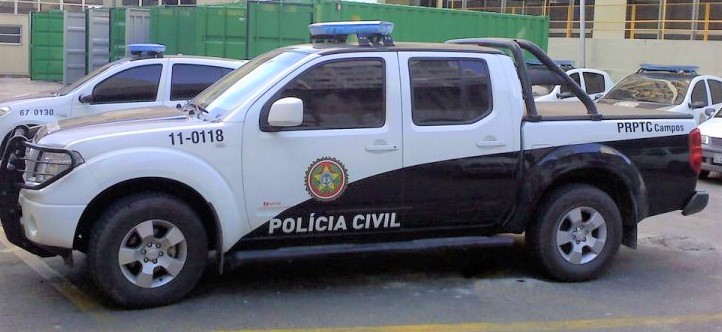
Municipal Guards (Guardas Municipais)
Municipal Guards in Brazil act to protect the municipalities and are under the jurisdiction of the city mayor (prefeitos). They are essentially the police component of the council – a uniformed force responsible for parks, city halls and other properties belonging to the city council. They are a civilian agency but are recognized as police officers by the public. There is a grey area in terms of their recognition as police officers by other organizations.
Advice on Dealing with Brazilian Police
As a tourist, police officers will usually not bother you as long as you are not causing any disturbance. Make sure you have a copy of your ID with you at all times and if a police officer asks for it, produce it. Try Dealing with police in Brazil is usually time consuming, so not ideal whilst on holiday!
